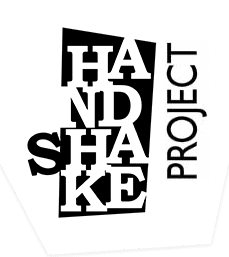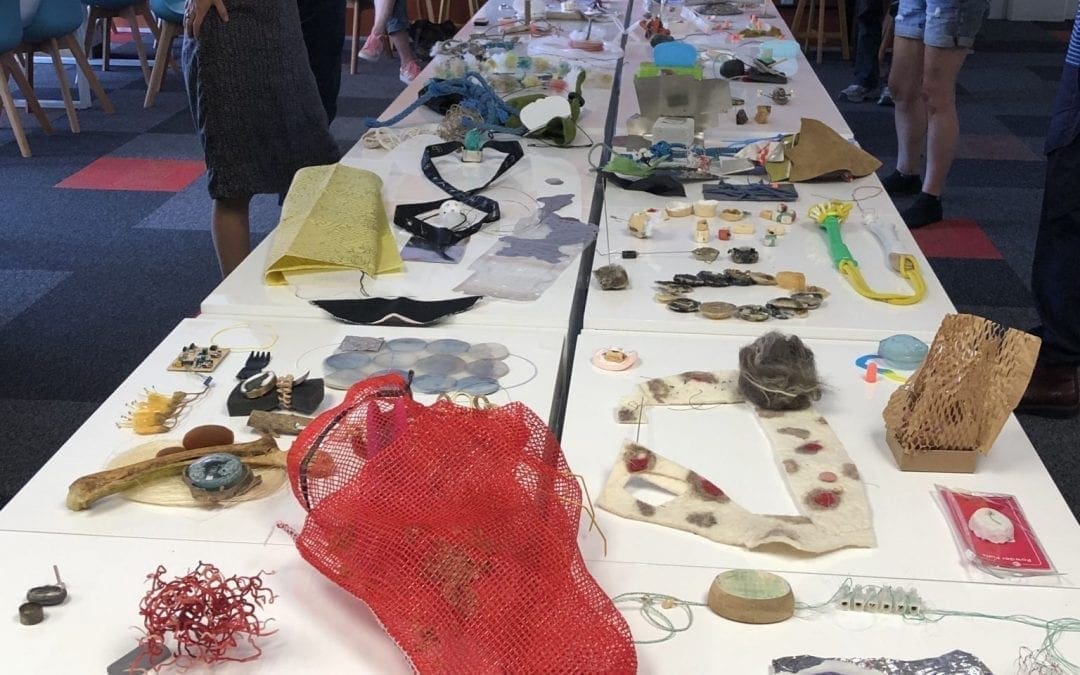Iris Eichenberg masterclass – Jan 2020
“It’s about the final outcome being not just jewellery.”
The thing that struck me most about Iris, aside from her warmth and generosity, was her use of language. The way she uses words is poetic and insightful. She has the ability to transform complex ideas into simple, easily-brain-digestible nuggets.
Iris was extremely generous with her time, attention and knowledge over the few days that she spent with us. In that spirit of generosity, I would like to share with you some of the insightful gems that she shared with us; things that resonated with me and that I will take forward with me to inform my creative process. I share her words with you so that you might engage with them in your own way.
Evoke it, don’t describe it.
“Make work that evokes the feeling that you want to talk about, not that talks about the feeling you want to evoke.”
When you make work that simply describes a feeling it’s “like a road sign pointing to a road rather than walking down the road yourself.”
“Affect goes beyond identifying the signs and signifiers/symbols.”
“Skin-ness is not a piece of skin on the table. It’s in something that evokes the feeling of our experience of skin. Very often we mix up what we want to evoke with what it is physically.”
“If we totally forget what is important about our work in the first place (if we leave behind everything that’s important about it during the process), we kill our work.”
Think about the energy of the piece you are making – how the combination of process and material come together
“A thing never forgets how it is made. It has that energy in it.”
“When anything comes together, you have to reason why they come together.”
“The connection you use to put two things together is as important as what you put together.”
“We need to have care for the work we do – where we share it, how it is exhibited/displayed/grouped with other’s works.”
When is enough?
“If you can’t pare back, then add. Like instruments, adding and taking away, you have to experiment with the numbers to get the good sound.”
“If there are a few, then we are doing something to them (transforming them into something). But, if there were a lot of them, they would do something to us. As a big group they would deny us the ability to transform them.”
“Unfinishedness – Is the promise better than the finished object? You filled in all the potential it had, to finish it.”
“Sometimes more work kills. Sometimes less work isn’t enough.”
“You cannot be afraid of being misunderstood. The more you explain the more you kill your work.”
“Don’t get something critiqued if you’re not ready for it. Your ground is so fresh that anyone/everyone could plant seeds in it.”
“Lack of understanding is sometimes very clarifying.”
Trust in yourself and in the process of making
“Rather than thinking about what you’re doing while you’re doing it, try to sort it out through the exploration of a material.”
“Sometimes you have to make a lot in order to edit and find the answer.”
“If you judge too early in the process you don’t allow yourself to find yourself in the process.”
“Sometimes when we feel the external eye it makes us confused.”
“One tends to over-metaphorize things when you’re overwhelmed by emotions and you don’t know what to do with them. Start by making.”
“Sometimes a sideline in our work might be a gift we haven’t noticed.”
“Do not start with a defensive attitude when talking about your work.”
Vulnerability can be powerful and can help us to connect
At the start of our workshop, Iris began by asking us each to share our biggest obstacle with the rest of the group. My overriding default position is that everyone else has it sussed, is confident and secure, that I am the only one feeling the way I do. It was extremely powerful and moving to see how much we had in common, the fears and insecurities that were shared; that the passion for making provides a certain momentum that allows movement forwards through the terrain of insecurity and doubt that can be so prevalent in creative practice. In fact, movement happens precisely because we haven’t got it all figured out.
It was such an honest and thoughtful way to start the project and to bring us all together as a group; to get to know each other as individuals and to form a bond as a new collective. Thank you Iris and my fellow Handshakers for facilitating this so that we could connect in such a meaningful way.
(All words by Iris (in italics) are taken from my notes from workshop discussions during HS6 Masterclass, Jan 2020).
Iris Eichenberg is Artist in Residence and Head of the Metalsmithing Department at Cranbrook Academy of Art in Bloomfield Hills, Michigan, and was formerly Head of the Jewelry Department at Gerrit Rietveld Academie, Amsterdam.


